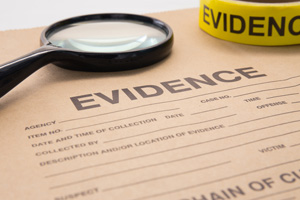Arizona will implement Thomson Reuters' digital evidence platform statewide

Image from Shutterstock.com.
Arizona’s court system will begin utilizing Thomson Reuters’ cloud-based court exhibit and evidence sharing platform to assist with the handling of digital evidence across the state, it was announced Wednesday.
The Digital Evidence Center tool will be particularly helpful as most court hearings continue to be held virtually due to COVID-19, says Dave Byers, director of Arizona’s Administrative Office of the Courts.
“The virtual hearings have added a whole new need to easily upload digital evidence and then share it right on the spot in the hearing and in the future,” Byers tells the ABA Journal.
He also says the platform will be very useful for self-represented litigants who have video or photographic evidence on their phones they would like to introduce during either a virtual or in-person hearing.
Arizona will be the first U.S. jurisdiction to implement the Digital Evidence Center platform across its statewide court system, according to Steve Rubley, president of Thomson Reuters’ government division.
He says the state’s use of the product will provide the public with greater access to justice as Arizona’s court system, like others across the country, grapples with cases piling up during the pandemic.
“It is now allowing the state of Arizona to begin working their way out of the backlog and begin to have fairer justice for the citizens of Arizona,” Rubley tells the ABA Journal.
Overall, more than 25,000 lawyers and court officials as well as 1,500 judges spread across 25 countries use the platform, Rubley says. For example, the platform previously known as CaseLines is being used throughout the United Kingdom and is being implemented throughout Ontario, he reports.
Byers says judges in other jurisdictions who have used the platform share that they appreciate the ability to take private notes in the system about the evidence before them. The ability to word search the evidence also reduces the time it takes judges to issue orders or judgments, he reports.
Meanwhile, Byers says Arizona will begin by piloting the digital evidence platform in three superior courts (Maricopa, Mohave and Pima) and three limited jurisdiction courts. If all goes well, the platform will then be made available to the rest of the state courts, he says.
“We needed it before the pandemic,” Byers says. “We will need it after.”
Write a letter to the editor, share a story tip or update, or report an error.


